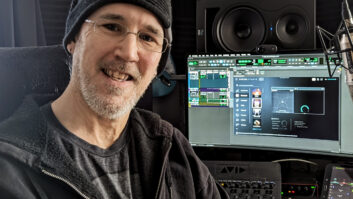
On the occasion of Almo Corp.’s 70th anniversary, and on the heels of its game-changing acquisition of distributor IAVI, TWICE caught up with the company’s seemingly always-in-motion executive team of chairman Gene Chaiken and president/CEO Warren Chaiken.
Their reflections on where the company’s been, where it’s going, and how the industry has changed along the way, follow.
TWICE: What was your motivation to build the company from a regional parts supplier to an international distributor?
Gene Chaiken: An opportunity existed and no one else did it. We’ve always been an aggressive company, and we saw where the market was going. Distributors used to handle one brand, and we changed that. We came up with a plan in the early ’80s for a national rollout with multiple brands, and acquired 22 companies and backfilled the country.
TWICE: Why haven’t you gone public?
Gene: Almo was public. We spun off the parts business in 1962 and were sold to a public company, Sterling Electronics, in 1968, but repurchased the business two years later and took it private again.
We won’t go public. We don’t need the financing, and staying private has made us more strategic. Instead of worrying about the next month or the next quarter, we can look ahead to the next three to five years. And we couldn’t have made the acquisitions we did, knowing how much we would lose initially, if we had to answer to shareholders.
TWICE: Did you always want to go into the family business?
Warren Chaiken: My first experience in distributing was taking the Atari game cartridges my dad brought home and selling them to my friends and teachers.
Growing up he threw me into as many parts of the business as possible, but after getting married and earning my MBA I went to work on Wall Street.
My sisters weren’t interested in the business, and by 1993 my dad had to make some succession decisions, so he asked me, “What do you want to do with your life?” And I asked myself, “Do I want to be part of a business I could help lead, or do I want to remain a cog in the wheel at a securities firm?”
Gene: I came in as a son-in-law. Nepotism, when it works, is great. When it doesn’t, it’s a disaster. It’s hard to fire family.
TWICE: Which developments had the greatest impact on the industry over your lifetime?
Gene: The biggest development for me was the switch from TV picture tubes to solid state. It changed this company from a parts supplier to a finished-products distributor.
The second-biggest impact was the influx of offshore manufacturers. Companies like RCA and Zenith are gone, GE will be Chinese-owned, and all our TVs are made by Korea.
No. 3 would be e-commerce, which changed the consumer electronics business.
TWICE: Where do you see the industry in the next 10 or 20 years?
Gene: It’s certainly going to be different, just as no one ever thought that Walmart would be taken on.
I see continued consolidation, with fewer companies doing more of the business. Our job is to help the independent dealer survive.
Warren: There’ll always be a place for brick-andmortar stores. People like to see, hear and touch the product and interact with people — we’re social creatures after all. This, plus explaining the complexities of connectivity, is where the independent dealer can still be an important part of the business.
I also see retail becoming more specialized, with a greater emphasis on service. Those that don’t add value and only compete on price will go away.
It’s just like us — we do all the things no one else wants to do, like shipping, training and financing smaller dealers and resellers, and owning hundreds of millions of dollars of inventory, day in, day out.
TWICE: What about the next 10 to 20 years for Almo?
Warren: We’ll continue to look for opportunities to expand within businesses we’re in, and will look for additional services to provide. Hey, we’re doing things now we couldn’t have dreamed of five years ago.
Gene: Our job is to solve problems, and I’d say we do it pretty well.
But it all starts with people. I like to say that all our assets leave at 5:30. I just hope they come back the next day.













